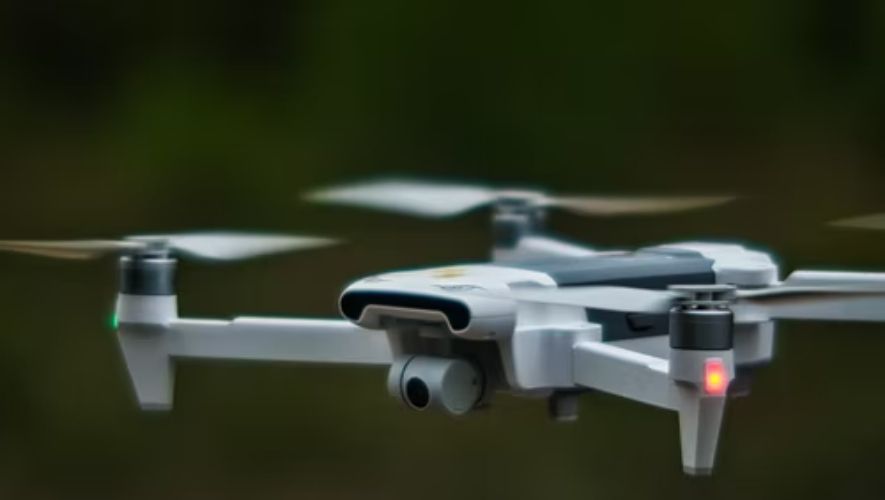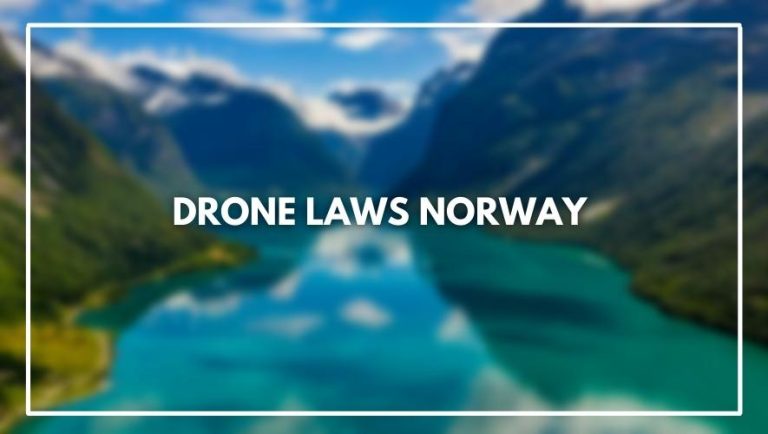Do you want to know about the drone laws in Arizona? Drones have become very popular and they’re now a household item similar to a cell phone.
To fly a drone in Arizona, you’ll want to keep a few things in mind. You should register your drone with the FAA. Make sure it stays below 400 feet. Also make sure it doesn’t fly within 5 miles of any boundary of a military installation.
Because of this, people assume they know everything there is to know about drone laws. But just like cell phone laws, drone laws are constantly changing. And depending on where you live, the rules can vary drastically.
The Federal Aviation Administration (FAA) has issued recreational drone users in the United States new rules to follow until a permanent set of regulations can be developed. Arizona, like many other states, also has created its own drone laws for drone enthusiasts and commercial users alike.
The new Arizona law requires drone pilots to register their aircraft with the state and receive a hobbyist’s permit for flying drones for recreational purposes. In addition, the law bans people from flying drones near airports—as well as those that weigh more than 55 pounds or that fly higher than 400 feet.
Arizona Law Allows The Use Of Unmanned Aircraft

As the use of drones in the United States continues to grow, so does the number of states that are passing laws that regulate the use of drones.
Arizona is one of the states that have passed legislation that allows for the use of drones by the government, and the private sector.
The state has passed legislation that allows for the use of drones by the government, and the private sector.
The Arizona Legislature passed legislation that allows for the use of drones by the government, and the private sector.
Arizona law allows the use of unmanned aircraft for personal and recreational use only. For example, Arizona law does not allow the use of unmanned aircraft for commercial purposes and does not allow the use of unmanned aircraft for law enforcement purposes.
Arizona follows federal law regarding Unmanned Aircraft Systems (UAS). Some uses of UAS in Arizona may require FAA approval. The FAA has sole discretion to regulate airspace from ground level to infinity.
Laws In Arizona Regarding Drone Use
Laws in Arizona follow the federal laws regarding drone use. There are extra restrictions on use of drones for work and commercial purposes, though. Any drone you buy or currently own must be registered with the FAA if it weighs over 0.55 pounds and is used only for personal or recreational purposes.
So long as the drone follows these rules, you can operate your drone freely throughout Arizona, provided you don’t break any other laws while doing so.
Arizona law allows use of drones for personal and recreational use only. A few common-sense things that must be followed:
- The drone must weigh less than 55 pounds (this includes all batteries and any equipment being carried)
- The operator must always keep the drone within line-of-sight
- A drone may not be operated closer than 5 miles from an airport without first contacting air traffic control
A Drone Can Be Flown At A Height Of 400 Feet

The state of Arizona requires that drones be flown no higher than 400 feet above the ground level. Drones can fly at higher altitudes if granted permission from the Federal Aviation Administration (FAA). This height restriction is a general rule in most states, as it prevents interference with manned aircraft.
Contact The Airport Administration Office
You, as the drone operator, must be aware of other aircraft in the area. Airports have federal authority over their respective airspaces. As a result, you must comply with their requirements.
You should contact the airport administration office to notify them of your operation and follow the procedures they require for any specified distance from an airport that you are operating within.
Notified If The Unmanned Aircraft Weighs More Than 55 Pounds
If your unmanned aircraft weighs more than 55 pounds and will be used for any purpose other than recreation, you must register it with the FAA. Registration is free, but mandatory.
To begin the registration process, you must first determine if your aircraft falls into one of three categories:
- Standard Aircraft
- Small Unmanned Aircraft Systems (under 55 pounds)
- Micro Unmanned Aircraft Systems (under 0.55 pounds)
Once you have determined which category your aircraft falls under, follow the proper registration process for that category. For example, to register a standard aircraft:
- Create an account on FAA’s Drone Zone portal using a valid email address
- Use this portal to submit an application and registration fee
- The FAA will send an acknowledgement email upon successful submission of registration information and payment of the fee
Before every flight operation, make sure to have proof of ownership available to show law enforcement if needed.
Drones May Not Be Flown Over Groups Of People

You may not fly a drone over a group of people, stadiums or sporting events. Although this seems obvious to most people, it’s something that needs to be explicitly stated because someone is guaranteed to do it. It just takes one person who isn’t paying attention to ruin your enjoyment of the big game.
I know you’re a considerate person and would never do such a thing; I’m just saying that there are others out there who aren’t so responsible or socially aware.
No Person May Intentionally Interfere
The FAA’s drone rules say that you cannot intentionally interfere with or operate a drone recklessly so as to interfere with manned aircraft in flight. You must always yield right of way to manned aircraft, and drones must stay clear of and not interfere with manned aircraft operations.
Also, the FAA has the right to take enforcement action against persons operating drones that endanger the safety of the national airspace system.
It Is Illegal To Fly Drones Over State Correctional Facilities
You cannot fly drones over a state correctional facility, prison or jail unless you have first obtained permission from the management of the facility. If you do not obtain this authorization before flying your drone, you are likely to be charged with a crime.
Any images obtained from the use of drones that contain nudity are prohibited from disclosure, dissemination, publication and distribution. You, as a drone owner and operator, have certain responsibilities. One of those responsibilities is to ensure that you are not using your drone in a manner that could invade the privacy of others.
Drones Have Been Useful In Many Ways
When you’re ready to fly a drone, familiarize yourself with the rules and regulations that govern their use. Generally speaking, Arizona is fairly flexible when it comes to drone operations; however, there are some restrictions in place to protect residents and visitors from injury or criminal charges.
Be sure to check the laws in other states where you plan on flying your drone. While Arizona may allow unfettered use of drones in certain areas as long as they’re registered with the FAA, other states may have more restrictive laws governing their operation.
Additionally, local jurisdictions may also have specific rules dictating how drones can be used. No matter where your plans take you, make sure you are following all applicable state and local laws so that you don’t run into any issues while enjoying this exciting technology!
Frequently Asked Question (drone Laws In Arizona)
What Are The Laws Regarding Drone Flight In Arizona?
To answer this question, you must look at the Federal Aviation Administration (FAA), the Federal Communications Commission (FCC), and the National Transportation Safety Board (NTSB). These three government agencies have jurisdiction over drone flight in Arizona.
The FCC regulates radio communications including satellite systems such as those used by drones among others through its Office of Engineering & Technology
Are There Any Additional Laws That May Apply?
There are a few other laws that you may be interested in learning about as well. For example, if you plan to fly your drone for commercial purposes, whether it’s for a news station or a real estate agency, the FAA has rules and regulations that must be followed.
If you’re planning on flying with others then keep these rules in mind:
- Do not interfere with manned aircrafts (airplanes).
- If your drone weighs over 250 grams then do not operate it within five miles of any airport without contacting air traffic control first–even if you aren’t trying to land at an airport!
How Do I Know If I Can Fly At A Park Or Other Public Place?
You can find out by consulting the website of the park or other public place, as well as the website of the city or county where it is located. In addition, you can call them to ask if they allow drones.
Can I Fly My Drone In My Neighborhood?
Most of the time, you can fly your drone in your neighborhood. The only time you should not fly your drone in a neighborhood is if you live near an airport or military base.
You can also fly your drone in any public park that allows it. The rules for flying drones vary from park to park; make sure you read up on those before taking off!
If you want to fly over private property with permission from the owner, then go for it! Just make sure that everyone involved knows what’s going on so there are no accidents later on down the road (or collision with another aircraft).
If someone says no? Don’t try taking off anyways because that would be very dangerous and illegal!
Conclusion
In Arizona, drones cannot be flown within 5 miles of an airport without permission from the airport management office. Drones cannot interfere with emergency response vehicles or firefighting efforts. Drones cannot be flown over crowds of people without consent of all individuals involved
The rules and regulations surrounding drones in Arizona vary depending on where you fly. Drone laws for businesses, schools, and hobbyists are all different, which is why it is important to have a firm understanding of the laws set forth within the state before proceeding with any training or flying.
By reading through this guide and consulting a lawyer, if necessary, many of your questions about drone laws can be answered, making it so you don’t accidentally violate the rules.
Hopefully, we’ve helped to clarify a few things about Arizona’s drone regulations that may be a bit confusing.


![Drone laws Denmark [March 2023] [Rules & How to Register]](https://discoveryoftech.com/wp-content/uploads/2022/08/drones-60-768x434.jpg)
![Drone laws Korea [March 2023] [Rules & How to Register]](https://discoveryoftech.com/wp-content/uploads/2022/05/drone-2022-08-19T235741.560-768x434.jpg)


![Drone Laws in Illinois [March 2023] [Rules & How to Register]](https://discoveryoftech.com/wp-content/uploads/2022/08/drone-13-768x434.jpg)